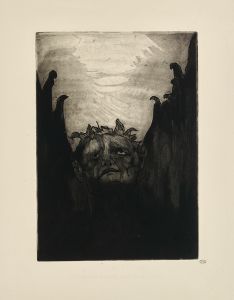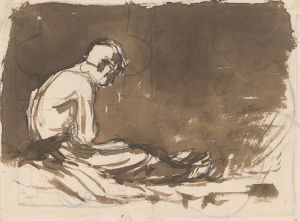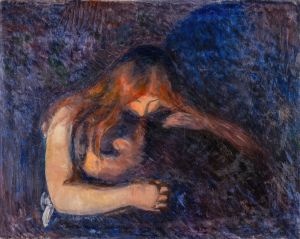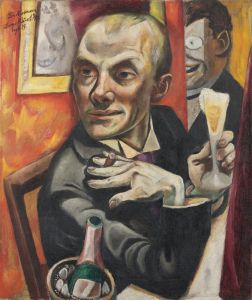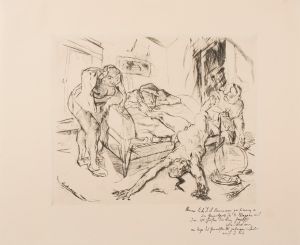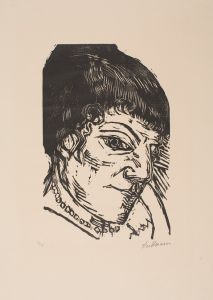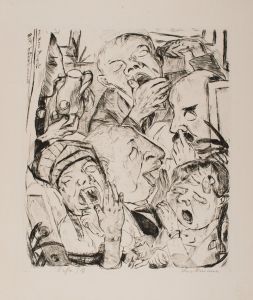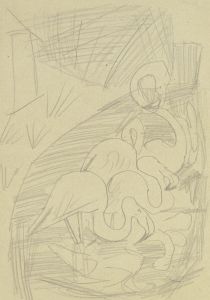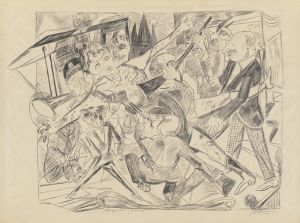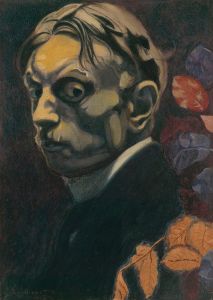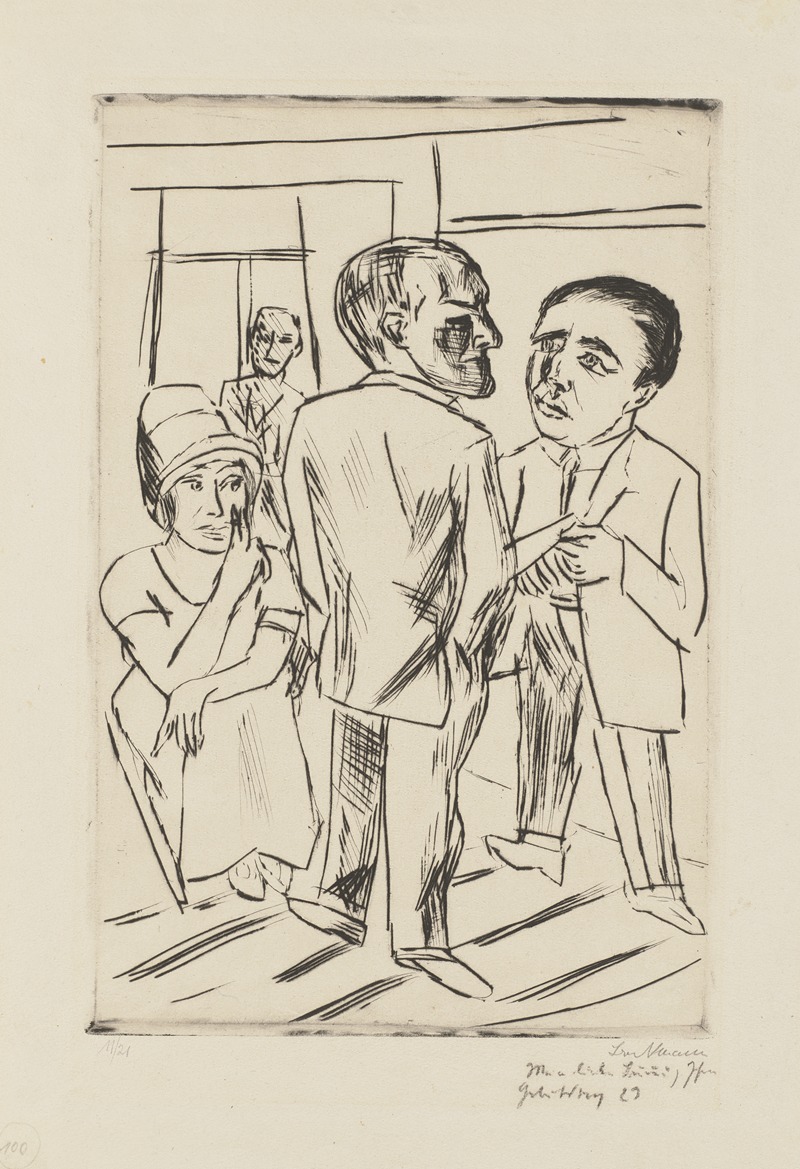
At the Hotel
A hand-painted replica of Max Beckmann’s masterpiece At the Hotel, meticulously crafted by professional artists to capture the true essence of the original. Each piece is created with museum-quality canvas and rare mineral pigments, carefully painted by experienced artists with delicate brushstrokes and rich, layered colors to perfectly recreate the texture of the original artwork. Unlike machine-printed reproductions, this hand-painted version brings the painting to life, infused with the artist’s emotions and skill in every stroke. Whether for personal collection or home decoration, it instantly elevates the artistic atmosphere of any space.
Max Beckmann's painting "At the Hotel" is a significant work by the German artist, known for his contributions to the Expressionist movement. Beckmann, born in 1884 in Leipzig, Germany, is celebrated for his unique style that blends elements of Expressionism, New Objectivity, and Symbolism. His works often reflect the tumultuous socio-political landscape of early 20th-century Europe, marked by two World Wars and significant cultural shifts.
"At the Hotel" was painted during a period when Beckmann was exploring themes of human existence, identity, and the complexities of modern life. His works from this era frequently depict scenes of urban life, often set in cosmopolitan environments like hotels, cafes, and theaters. These settings allowed Beckmann to explore the interactions and tensions between individuals in public and private spheres.
The painting "At the Hotel" exemplifies Beckmann's mature style, characterized by bold colors, strong lines, and a complex composition. His use of space and perspective often creates a sense of tension and drama, drawing viewers into the narrative of the scene. Beckmann's figures are typically robust and sculptural, imbued with a sense of psychological depth that invites interpretation.
In "At the Hotel," Beckmann captures a moment that is both ordinary and enigmatic. The setting of a hotel, a transient space where people from different walks of life intersect, serves as a microcosm of society. Beckmann's choice of this setting reflects his interest in the themes of alienation and the search for identity in the modern world. The figures in the painting, rendered with Beckmann's characteristic intensity, appear engaged in a silent dialogue, their expressions and postures hinting at underlying narratives.
Beckmann's work is often noted for its symbolic content, and "At the Hotel" is no exception. The painting may include objects or gestures that carry deeper meanings, reflecting Beckmann's interest in mythology, literature, and the human condition. However, Beckmann's symbolism is often ambiguous, leaving room for multiple interpretations and inviting viewers to engage with the work on a personal level.
Throughout his career, Beckmann faced significant challenges, including the rise of the Nazi regime in Germany, which labeled his art as "degenerate." Despite these obstacles, he continued to produce powerful and thought-provoking works, eventually emigrating to the United States in 1947, where he continued to paint until his death in 1950.
"At the Hotel" is a testament to Beckmann's ability to capture the complexities of human experience through his art. His work remains influential, offering insights into the psychological and social dynamics of his time. Today, Beckmann is regarded as one of the most important artists of the 20th century, and his paintings, including "At the Hotel," continue to be studied and appreciated for their artistic and historical significance.







